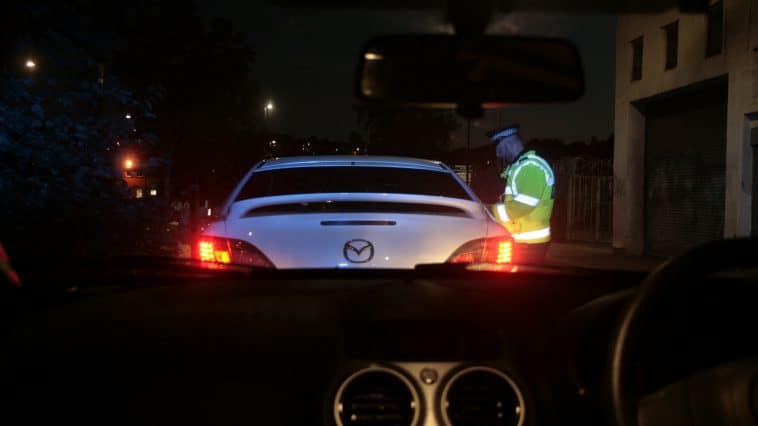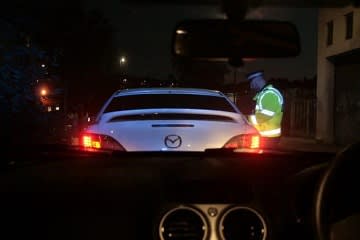Avon & Somerset police are are targeting uninsured drivers as part of a week of action, catching those knowingly driving without insurance and drivers who may be unaware they’re driving with invalid cover.
Using the very latest technology, ANPR (Automatic Number Plate Recognition) cameras, they will be targeting roads across the force area between Monday 12 November and Sunday 18 November.

Richard McKeirnan from Avon and Somerset police, said: “This campaign will be delivered using the most up to date technology to target drivers without car insurance.
“Drivers obeying the law by insuring their cars may find themselves being penalised when they are involved in a collision with an uninsured driver, paying higher premiums. Owners of vehicles found to be uninsured will receive a letter letting them me know we’re aware they’re driving illegally. Those who do not buy appropriate insurance could receive 6 points on their license, a £300 fine or have their vehicles seized, and potentially destroyed.
“We’re not just targeting those who are driving around knowingly breaking the law, some people aren’t aware of the exclusions that can apply when they fill out their insurance information and that’s why we’ve collated a series of myths around car insurance to remind drivers to check their policy.”
Recent figures from MIB (Motor Insurers Bureau) showed that warnings are being issued to around 3,000 uninsured drivers every day.
Between January 2018 and October 2018 police seized 2327 uninsured vehicles from the roads of Avon and Somerset.
PCC Sue Mountstevens for Avon & Somerset said: “Uninsured drivers make the roads more dangerous places and it is honest motorists who have to pay higher premiums as a result of claims arising from uninsured losses. This campaign is a great opportunity to remind motorists to check that they are correctly insured for every journey they make while contributing to the overall safety of the roads.”
This is the first time the force has run a proactive operation like this, every uninsured driver will be contacted and reminded of the law. There are many myths around car insurance and we’re using this enforcement week to debunk four of the most common.
Common myths on car insurance:
Myth 1: I have fully comprehensive insurance cover so I can drive any car
Fact: Not all policies include cover for the use of other vehicles. Always check your policy wording and never just assume you’re covered. You need to apply or pay for specific DOV (Driving Other Vehicles) cover, which is only available to the policy holder.
Consequences: If an officer contacts the MIB and confirms you don’t have the correct cover, police can legally seize the vehicle on the spot.
Myth 2: I’m covered to drive to and from work
Fact: So that you can drive your vehicle to and from work your policy needs to cover you for ‘commuting’. Also if you ever need to travel between places of work you need to ensure you are covered for ‘business’ mileage.
Consequences: If you’re involved in an collision with another driver and your insurer finds the incident happened outside of your policies terms they may not cover you for any damage or injuries, meaning you would personally liable for covering the costs of fixing your vehicle and the other drivers, and pay any compensation. Subsequently, your insurer is likely to charge you a higher premium for cover, or decline to insure you altogether.
Myth 3: I am the main driver of the car but I put my mum down as the policy holder to save money
Fact: This is also known as ‘fronting’ and is considered fraud, carrying some serious penalties. The main driver of the vehicle should also be the policy holder.
Consequences: Your insurance provider may increase your future premiums or void your policy. If you’re found guilty of fraud you will get a criminal record, which could mean you have difficulty accessing other financial products in the future, including mortgages and credit cards.
Myth 4: My car broke down and it’s a write-off. Because I won’t be driving it I don’t need to keep it insured
Fact: Keeping a vehicle without insurance is an offence (introduced in 2011). Where a vehicle has broken down or is considered a write-off it still needs to be declared as being off the road. The Continuous Insurance Enforcement (CIE) legislation means that you must either insure your vehicle or, if it is not on the public road, declare it as off-the-road using a Statutory Off-Road Notice (SORN).
Consequences: MIB and DVLA (Driver and Vehicle Licensing Agency) work in partnership to identify uninsured vehicles. If your vehicle appears to be uninsured because it is not listed on the MID and not the subject of a Statutory Off-Road Notice, you will be sent an Insurance Advisory Letter (IAL). If you receive an advisory letter and take no action then the penalties can be severe.
If you are unsure about what you’re covered for in your insurance you can either check your policy documents or contact your insurance provider direct. #OpDriveInsured



 Please Wait...
Please Wait...